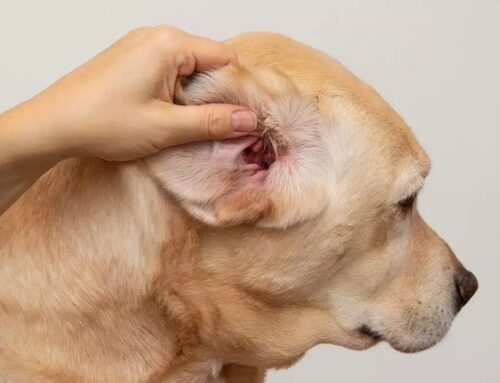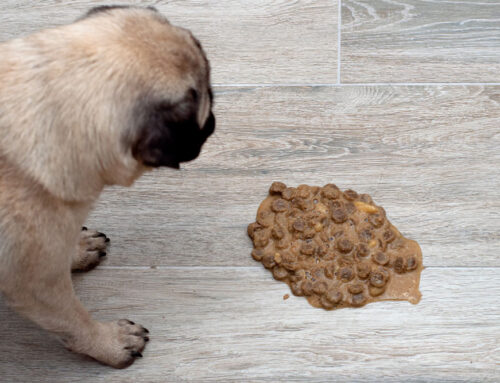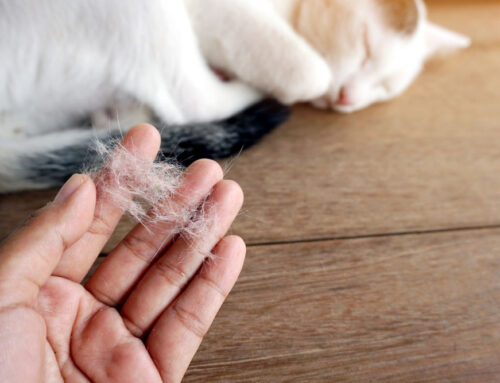Your cat is happy, has a healthy appetite, and gets exercise from regular play. So, why do you need to bring them to WesVet each year? Routine and preventive veterinary care is essential for cats for many reasons. For one, the feline species is notorious for their independence—they are unlikely to let you know when they are experiencing pain or discomfort, but our veterinary team is trained to pick up on subtle clues and exam findings that may indicate a problem. Since many pet diseases start out silently, wellness testing and other preventive measures are key in diagnosing illness early, and keeping your cat on track for optimal health. Here’s what you can expect during your visit:
#1: A chit chat about your cat’s lifestyle
If your cat hasn’t been in the clinic in a while, Dr. Schoonover will want to know about their day-to-day routine. What kind of food are you feeding, and how much? Wet food, or dry food? Does your cat spend any time outdoors? Are you brushing their teeth? It may sound like a game of 20 questions, but this information is important in determining an appropriate treatment plan for your feline friend. Come prepared with this information, and ready to engage with any questions you may have. Now is your chance to pick your veterinarian’s brain.
#2: A head-to-tail examination
Our highly skilled veterinary team is trained to look for abnormalities that aren’t always obvious to pet owners. During a physical examination, we will assess the following:
- Eyes — Neurological responses, inflammation, and degenerative changes
- Ears — Discharge, redness, and tympanic membrane changes
- Chest — Heart rate and rhythm, respiratory rate, and lung sounds
- Abdomen — Discomfort, masses, gas, or fluid
- Coat and skin — Hair loss, skin redness, and ectoparasites
- Muscle and skeletal — Body condition, range of motion, and gait
We also note if your pet flinches or reacts during the exam, which may indicate discomfort in that area. These physical findings are important for determining the next diagnostic steps in your pet’s plan.
#3: A dental check
Dental disease is exceedingly common in our nation’s pet population, typically beginning as early as age 3. Plaque, tartar, gingivitis, and loose teeth are, unfortunately, common findings in adult cats, but regular dental care can help keep these findings at bay. Dental exams are important for younger pets too, especially to check for retained baby teeth, or problems with permanent teeth eruption. Other common feline oral diseases include stomatitis and oral masses, which must be addressed early on. Read our post, What to Expect at Your Pet’s Dental Cleaning, for more information on routine dental cleanings at WesVet.
#4: Wellness testing
A quick blood draw can tell a lot about your cat’s wellness, so depending on their age and health status, we may recommend blood work, urine testing, or other routine lab tests, to assess internal function. For kittens, this usually includes a quick table-side test to check for two highly contagious infectious diseases—feline immunodeficiency virus (FIV), and feline leukemia virus (FeLV). Adult cats may need a complete blood count, chemistry panel, and urinalysis, to check on kidney and glucose values, or prior to an anesthetic dental cleaning. We also recommend these tests at least annually for all senior and geriatric cats, as well as thyroid testing.
#5: Vaccine boosters
While Tennessee state requires up-to-date rabies vaccinations for all domestic cats, we may recommend other immunizations, based on your cat’s lifestyle. The combination vaccine, FVRCP, covers a variety of contagious respiratory viruses, while the FeLV vaccine protects against this debilitating immune disease. In general, most cats should stay current on their FVRCP vaccines, which are given every one to three years. The FeLV vaccine can be skipped if your adult cat stays strictly indoors, although some owners opt to stay current, in case their cat escapes. Of course, all kitten vaccines are especially important, to ensure development of an appropriate immune response to these sometimes fatal diseases. Don’t skip your kitten immunization appointments!
#6: A plan for the year ahead

One of the most important aspects of your cat’s annual wellness visit is the plan we’ll make for the next year. If Fluffy needs to lose a few pounds, we will guide you on diet and exercise changes. If dental hygiene is a concern, we will review at-home oral care, and suggest products for you to try. If your cat’s lab work showed any abnormalities, we will review the next steps, to ensure your pet receives the gold standard of care. This is also the time to stock up on prevention medications, prescriptions, and food.
From kittenhood to seniorhood, WesVet is here for all of your furry friend’s healthcare needs. We can’t wait to see your cat, and keep them “feline good.” Contact us, and set up an appointment.






Leave A Comment